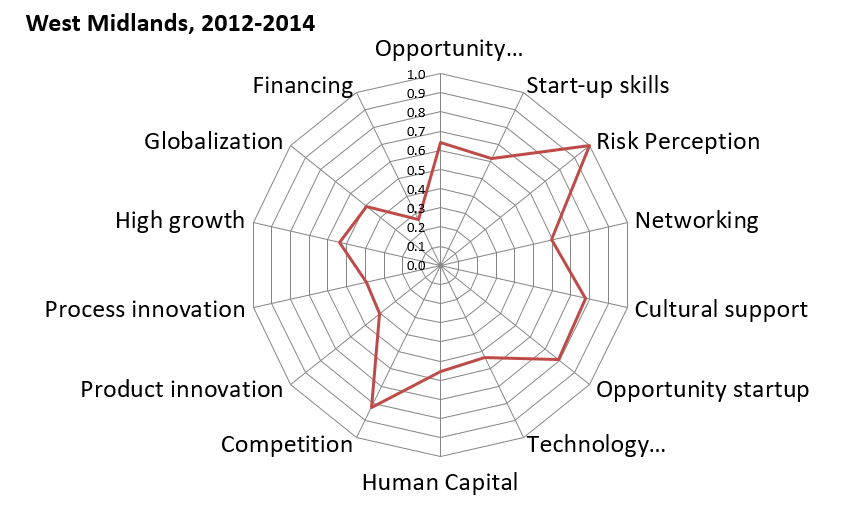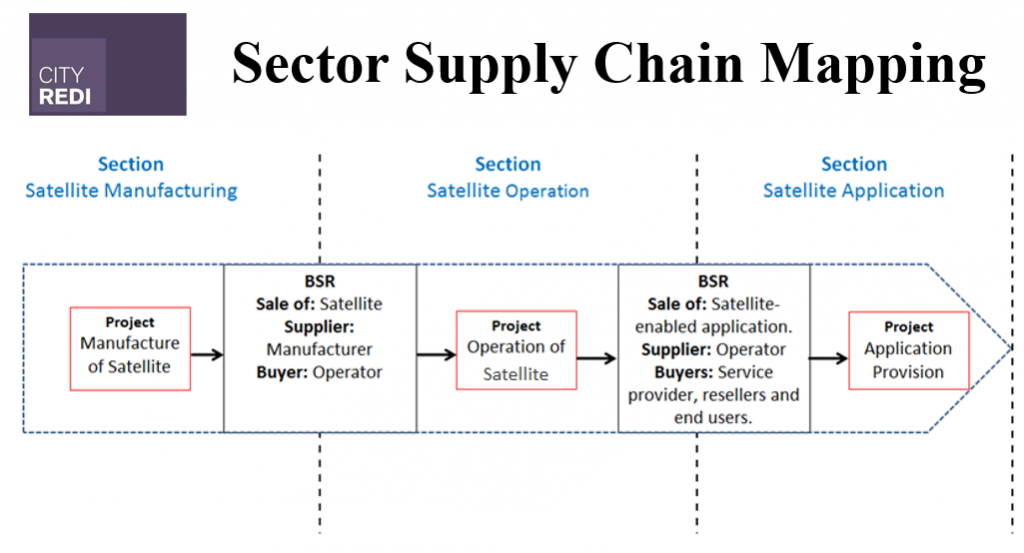
At the start of October researchers from the Enterprise Research Centre joined City-REDI at Winterbourne House at the University of Birmingham to share information on projects we are working on and consider how we might collaborate in the future. We have a number of areas of shared mutual interest and at the heart of both is a big effort in using econometric modelling and data analytics to make practical recommendations on innovation, resilience and sectoral and spatial variations.
City-REDI focuses on developing a better understanding of city-regions and informing policy development at all levels, such as regional government, civil service departments, charities and non-governmental organisations. The mission of the ERC is to deepen the understanding of SMEs and what drives SME innovation, productivity and growth and is similarly driven to inform policy and practice.
Professor Simon Collinson, Director of City-REDI, started the day by welcoming attendees and giving an overview of the five areas that both institutes are conducting research across. There then followed a day full of fascinating presentations that introduced both teams to the research being conducted by their own colleagues as well as that of those working elsewhere.
Productivity and skills
On the ERC side, Professor Mark Hart spoke about SME growth and productivity beyond the national headlines, saying that ‘there is no such thing as a high-growth firm, just firms that have high-growth episodes’. Dr Temi Akinremi gave a presentation on the diffusion of excellence across UK foundries and metal forming firms. Professor Jun Du gave overviews of two research projects; one focuses on fast-growth firms in the UK and their wider economic impacts, and the other on export dynamics and firm profitability in the UK.
Professor Anne Green introduced work she is doing alongside other City-REDI researchers on behalf of the Department for Business, Energy, Industrial Strategy and Skills to understand the business, professional and financial services sector and how best to create further demand and growth outside London. This builds on work Anne is also doing for the West Midlands Combined Authority on the Productivity and Skills Commission. Dr Deniz Devinc spoke about her work on intra-regional skills gaps in the West Midlands, seeking to inform policy-makers on how to ensure that skills are available in the locations where they are needed.
Innovation, diffusion, growth and smart specialisation
Joanne Turner at the ERC introduced work on innovation, growth and productivity in SMEs, considering the importance of R&D in driving innovation and how this differs by sector and size. The ERC’s Director, Professor Stephen Roper is working with Dr Halima Jibril on a project considering leadership and management practices and the returns to open innovation.
City-REDI’s Professor Raquel Ortega-Argilés discussed regional growth analysis and the potential impact of Brexit on the UK’s regions, sectors and occupations, as well as the implications for the long-term competitiveness of city-regions. Dr Max Nathan then introduced his work on cluster policies, focusing on an evaluation of the Tech City programme in London.
Entrepreneurship, resilience and finance

Professor Stephen Roper is collaborating with Dr Bettina Becker on a piece looking at modelling the economic impacts of UK Research Council funding. Maria Wishart presented on building better business resilience, and her work on a five-country, 2-year European study focusing on under-represented entrepeneurs with £750,000 of funding from the JP Morgan Chase Foundation. Dr Stuart Fraser and Dr Victor Ekpu introduced their work on finance, strategy and investments in SMEs. Dr Jane Bourke is working with Professor Stephen Roper on a project considering micro-businesses in Britain, with new data for the UK, Ireland and the USA.
Dr Tasos Kitsos is working with Professor Raquel Ortega-Argilés on a project with partners at Colorado State University to understand economic resilience in the aftermath of the 2008 financial crisis. This aims to understand the different local responses and their determinants, such as skills, demographics, industrial structure/ relatedness as well as entrepreneurship.
Supply chains
Maria Wishart and Professor Stephen Roper are working together to look at the diffusion of management practices and digital technologies in supply chains, taking as case studies the food and automotive industries.
Dr Andre Carrascal Incera spoke about supply chains in regional economics within an input-output framework, and the socio-economic impact modelling he has been doing for the West Midlands. Dr Chloe Billing presented her work on sector supply chain mapping with the example of the space industry in the UK, and how this links to a new project on commercialising research and development happening on the University of Birmingham’s campus.

Pathways to impact – knowledge curation
Dr Vicki Belt presented on pathways to impact, considering the ERC’s strategic goals, engagement strategy and delivery plan.
Finally, Rebecca Riley from City-REDI presented on stakeholder mapping, effective relationship development as part of her role that contributes to the institute’s success, and the opportunity assessment of bidding for new work.
This was a packed and interesting day that gave researchers from both institutes the chance to hear about each other’s research. We also made new connections that will hopefully lead to collaboration and joint work on areas of mutual interest in the future.
This blog was written by Liam O’Farrell, Policy and Data Analyst, City-REDI, University of Birmingham.
Disclaimer:
The opinions presented here belong to the author rather than the University of Birmingham.
To sign up for our blog mailing list, please click here.

